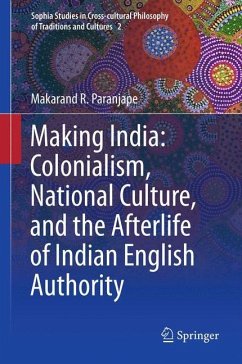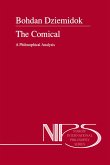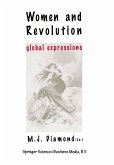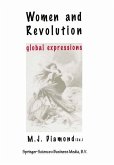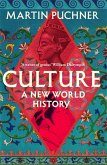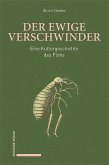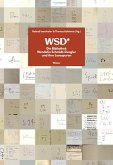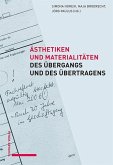Compared to how it looked 150 years ago at the eve of the colonial conquest, today's India is almost completely unrecognizable. A sovereign nation, with a teeming, industrious population, it is an economic powerhouse and the world's largest democracy. It can boast of robust legal institutions and a dizzying plurality of cultures, in addition to a lively and unrestricted print and electronic media. The question is how did it get to where it is now?
Covering the period from 1800 to 1950, this study of about a dozen makers of modern India is a valuable addition to India's cultural and intellectual history. More specifically, it shows how through the very act of writing, often in English, these thought leaders reconfigured Indian society. The very act of writing itself became endowed with almost a charismatic authority, which continued to influence generations that came after the exit of the authors from the national stage.
By examining the lives and works of key players in the making of contemporary India, this study assesses their relationships with British colonialism and Indian traditions. Moreover, it analyzes how their use of the English language helped shape Indian modernity, thus giving rise to a uniquely Indian version of liberalism. The period was the fiery crucible from which an almost impossibly diverse and pluralistic new nation emerged through debate, dialogue, conflict, confrontation, and reconciliation.
The author shows how the struggle for India was not only with British colonialism and imperialism, but also with itself and its past. He traces the religious and social reforms that laid the groundwork for the modern sub-continental state, proposed and advocated in English by the native voices that influenced the formation India's society. Merging culture, politics, language, and literature, this is a path breaking volume that adds much to our understanding of a nation that looks set to achieve much in the coming century.
Covering the period from 1800 to 1950, this study of about a dozen makers of modern India is a valuable addition to India's cultural and intellectual history. More specifically, it shows how through the very act of writing, often in English, these thought leaders reconfigured Indian society. The very act of writing itself became endowed with almost a charismatic authority, which continued to influence generations that came after the exit of the authors from the national stage.
By examining the lives and works of key players in the making of contemporary India, this study assesses their relationships with British colonialism and Indian traditions. Moreover, it analyzes how their use of the English language helped shape Indian modernity, thus giving rise to a uniquely Indian version of liberalism. The period was the fiery crucible from which an almost impossibly diverse and pluralistic new nation emerged through debate, dialogue, conflict, confrontation, and reconciliation.
The author shows how the struggle for India was not only with British colonialism and imperialism, but also with itself and its past. He traces the religious and social reforms that laid the groundwork for the modern sub-continental state, proposed and advocated in English by the native voices that influenced the formation India's society. Merging culture, politics, language, and literature, this is a path breaking volume that adds much to our understanding of a nation that looks set to achieve much in the coming century.
"It is primarily a reappraisal of many of the figures of Indian modernity with frequent comments on their legacy in postcolonial India. ... This book will be indispensable for scholars of Indian English Literature for years to come." -- Rohit Dutta Roy, essaysinhistory.com, 2014
"The book offers a fascinating gateway into the rich tapestry of ideas, aspirations, and narratives which undergird the formation of independent India. As Paranjape shows, India's emergence from colonial rule was not so much a linear historical process but rather the result of multiple, sometimes overlapping and sometimes conflicting, social-political imaginaries. One intriguing feature of his account is the accent on the role played by English speaking and writing Indians - dubbed here 'Indian English Authority' -- during successive generations from Rammohun Roy to Tagore, Aurobindo, and Gandhi." -- Fred Dallmayr, University of Notre Dame and author of Dialogue among Civilizations and Between Tradition and Modernity: India's Search for Identity.
"Over the last two centuries, Indian English has emerged as a medium of expression of the national identity of Indians as distinct from their regional identity. In playing this highly creative role, Indian English drew on what Makarand Paranjape calls India's 'usable past' a past that happily has not been erased, indeed cannot be erased. The use of the 'usable past', it is argued, has made Indian English a genuinely Indian phenomenon. This most welcome book is an indispensable guide to any one looking for a deep understanding of the Modern Indian mind as it expresses itself in and through Indian English." -- Anthony J. Parel, University of Calgary, author of The Machiavellian Cosmos (1992) and Gandhi's Philosophy and the Quest for Harmony (2006).
"The book offers a fascinating gateway into the rich tapestry of ideas, aspirations, and narratives which undergird the formation of independent India. As Paranjape shows, India's emergence from colonial rule was not so much a linear historical process but rather the result of multiple, sometimes overlapping and sometimes conflicting, social-political imaginaries. One intriguing feature of his account is the accent on the role played by English speaking and writing Indians - dubbed here 'Indian English Authority' -- during successive generations from Rammohun Roy to Tagore, Aurobindo, and Gandhi." -- Fred Dallmayr, University of Notre Dame and author of Dialogue among Civilizations and Between Tradition and Modernity: India's Search for Identity.
"Over the last two centuries, Indian English has emerged as a medium of expression of the national identity of Indians as distinct from their regional identity. In playing this highly creative role, Indian English drew on what Makarand Paranjape calls India's 'usable past' a past that happily has not been erased, indeed cannot be erased. The use of the 'usable past', it is argued, has made Indian English a genuinely Indian phenomenon. This most welcome book is an indispensable guide to any one looking for a deep understanding of the Modern Indian mind as it expresses itself in and through Indian English." -- Anthony J. Parel, University of Calgary, author of The Machiavellian Cosmos (1992) and Gandhi's Philosophy and the Quest for Harmony (2006).

